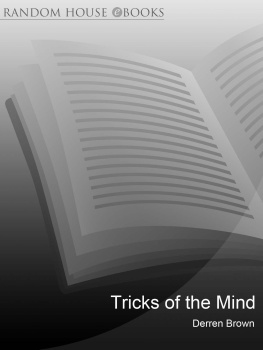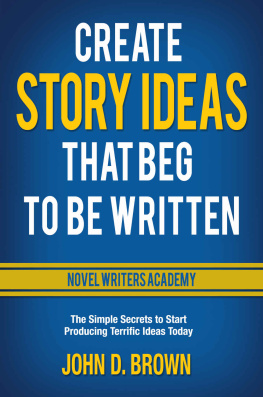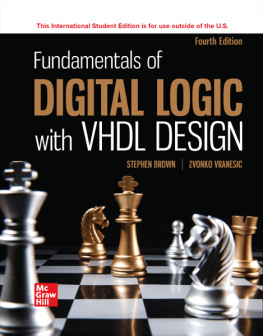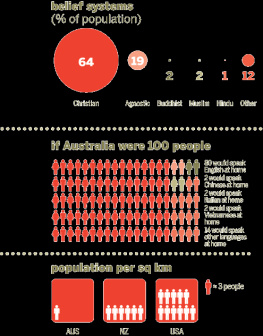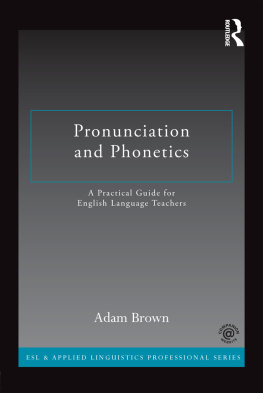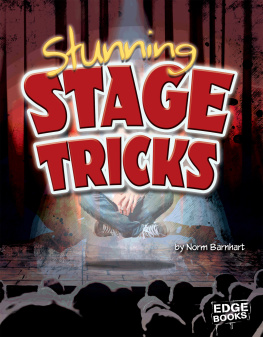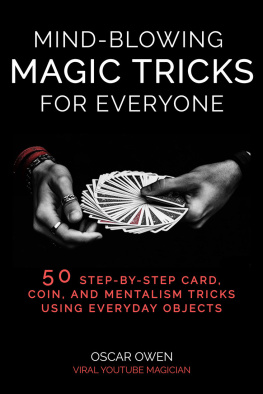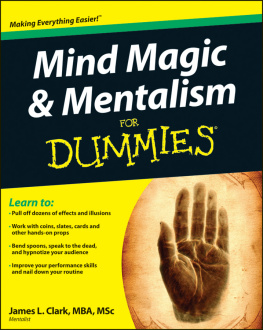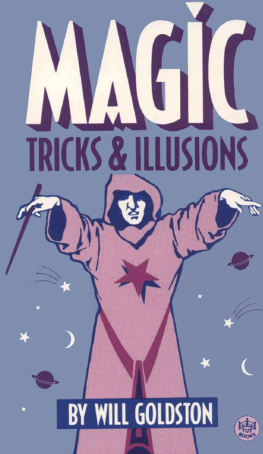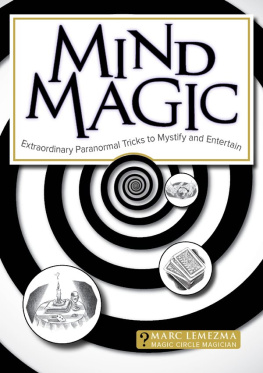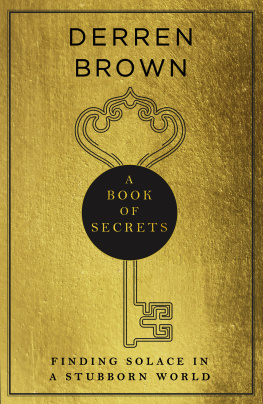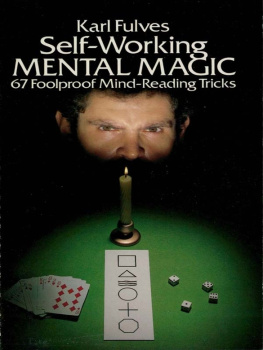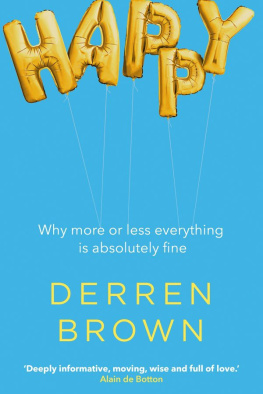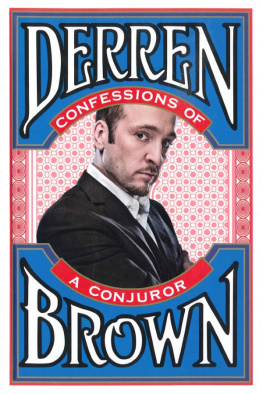TRICKS OF THE MIND
Derren Brown
This ebook is sold subject to the condition that it shall not, by way of trade or otherwise, be lent, resold, hired out, or otherwise circulated without the publishers prior consent in any form (including any digital form) other than this in which it is published and without a similar condition including this condition being imposed on the subsequent purchaser.
Epub ISBN: 9781409082569
Version 1.0
www.randomhouse.co.uk
TRANSWORLD PUBLISHERS
6163 Uxbridge Road, London W5 5SA
A Random House Group Company
www.rbooks.co.uk
First published in Great Britain
in 2006 by Channel 4 Books
This edition published in 2007 by Channel 4 Books
an imprint of Transworld Publishers
Copyright Objective 2007
Derren Brown has asserted his right under the Copyright, Designs and Patents Act 1988 to be identified as the author of this work.
A CIP catalogue record for this book is available from the British Library.
ISBN 9781905026357
Addresses for Random House Group Ltd companies outside the UK
can be found at: www.randomhouse.co.uk
The Random House Group Ltd Reg. No. 954009
2 4 6 8 10 9 7 5 3 1
About the Book
Derren Browns television and stage performances have entranced and dumbfounded millions. His baffling illusions and stunning set pieces such as The Sance, Russian Roulette and The Heist have set new standards of whats possible, as well as causing more than their fair share of controversy. Now, for the first time, he reveals the secrets behind his craft, what makes him tick and just why he grew that beard.
Tricks of the Mind takes you on a journey into the structure and psychology of magic. Derren also takes a long hard look at the paranormal industry, and looks at why some of us feel the need to believe in it in the first place. Alternately hilarious, controversial and challenging, Tricks of the Mind is essential reading for Derrens legions of fans, and pretty bloody irresistible even for those who dont like him that much ...
Reveals a surprising amount about his art ... there is much to enlighten, entertain and put into use! Psychologies
Will delight anyone with an interest in the weirder things people think and why they think them. Independent on Sunday
About the Author
Derren was born in 1971 in Croydon. It was a difficult birth his mother was in Devon at the time. A precocious and puzzling only child, he liked to paint, foster obsessive habits and once set fire to a neighbours boat by accident. Derren went on to study law and German at Bristol University and fell in love with the city. This was a time where marriage between man and city was still frowned upon, so rather than face public derision, Derren decided just to live there forever instead. During this time he began to perform magic in bars and restaurants, and gave occasional hypnosis shows. Then in 1999 he was asked by Channel 4 to put a mind-reading programme together for television, which became Derren Brown: Mind Control. It was an immediate success and gained Derren a cool underground kudos which he described as not enough.
Mind Controls 2 and 3 followed and then, in October 2003, Derren caused an international furore by playing Russian Roulette live on television. This secured notoriety with the public and a big apartment in London. Bristol can shove itself, he said. Further specials have followed including Derren Brown: The Sance which was the most complained about show in the history of television. He still receives several letters of complaint a week from psychics and Christians. He is sensitive to everyones objections but knows at least the latter group will forgive him.
Derrens workload keeps him exhausted and irritable fifty-two weeks a year and he continues to live in London with a large collection of taxidermy and a fatalistic parrot. He spends any free weekends painting and likes to receive gifts.
www.rbooks.co.uk
To Mum, Dad and Bro.
PREFACE
TO THE PAPERBACK EDITION
Welcome to the official paperback edition of this book. Perhaps, like me, you prefer a handy, pocket-sized walk-around version to the cumbersome monolith favoured by those ostentatious types with richly furnished libraries and more money than sex can buy. Favouring the compact hand-held form, which effortlessly supports the image of bibliophilic but penniless flneur that you have come to cultivate, you have most likely held out for this younger, sexier model, which, I can assure you, contains every single word of the original. The sentences have been preserved in their original order, and the entire index has been alphabetized for clarity.
A few changes have crept in: I was constantly revived and overjoyed to receive communications from people eager to point out perceived mistakes contained in the hardback incarnation of this volume. Most of these missives were charmless emails from barely literate correspondents who brilliantly missed the point of the counter-intuitive probability problems given in Part Six, or who took umbrage to the (correct) solution to the Monty Hall problem described there. Others were more interesting: one chap enlightened me to the fact that the numerical sequence 1, 2, 3, 4, 5, 6 is a disproportionately popular one chosen by those playing the Lottery, and in fact may even be the most popular choice. I made the point in this book that this sequence was as likely to win as any other particular sequence that appeared more random, and added that surely no one would ever play the straight run as it just looked like they wouldnt stand a hope in hell. I note now that my presumption turns out to be powerfully and grotesquely wrong. Most likely it is a smug group of pernickety pedants such as myself who play those numbers and then tell everyone they do so whenever the subject of gambling arises, precisely to make the same point about probability.
Since the hardback book was published, much literature has also sprung up on the subject of atheism: undoubtedly Richard Dawkins very public platform has raised the consciousness he intended. Not surprisingly, a reaction against what has been called atheist fundamentalism has arisen in its wake. Naturally any form of fundamentalism tends to be a pretty ugly thing. As some of this book deals with my own disbelief, I thought I might take this precursory opportunity to reiterate the point that not believing in something is not in itself a belief or a philosophy: it is the ism at the end that tends to cause trouble. Both atheists and believers can be as arrogant and witless as each other in frustrated debate, and people may choose strong and unapologetic words to raise awareness of an agenda. But despite the name-calling, it is still a fair point that to not believe in God is no more a belief in itself than to not believe in the Loch Ness Monster, Poseidon, or anything else one might personally consider far-fetched. Beyond that, there is only how you choose to express yourself.
That is all, I think: I hope youll enjoy this nifty, bendy little number and if you spot any mistakes, be sure to write them all out in an email, print it out, fold it up and pop it up your bottom.
PREFACE
Some time last spring I thought I would visit Her Majestys Fish in the aquarium, which sits beneath the gently disappointing London Eye not far from our production offices. At the time I had just had a fish-tank installed at home and was looking for sea-monsters with which to fill it. Tentacled, multi-limbed, slithering creatures which are entirely at home only when attacking submarines or James Mason were what I was after, and the thought of visiting a place where such things as giant octopodes (I notice that Microsoft is not only unhappy with the correct plural, but also allows

